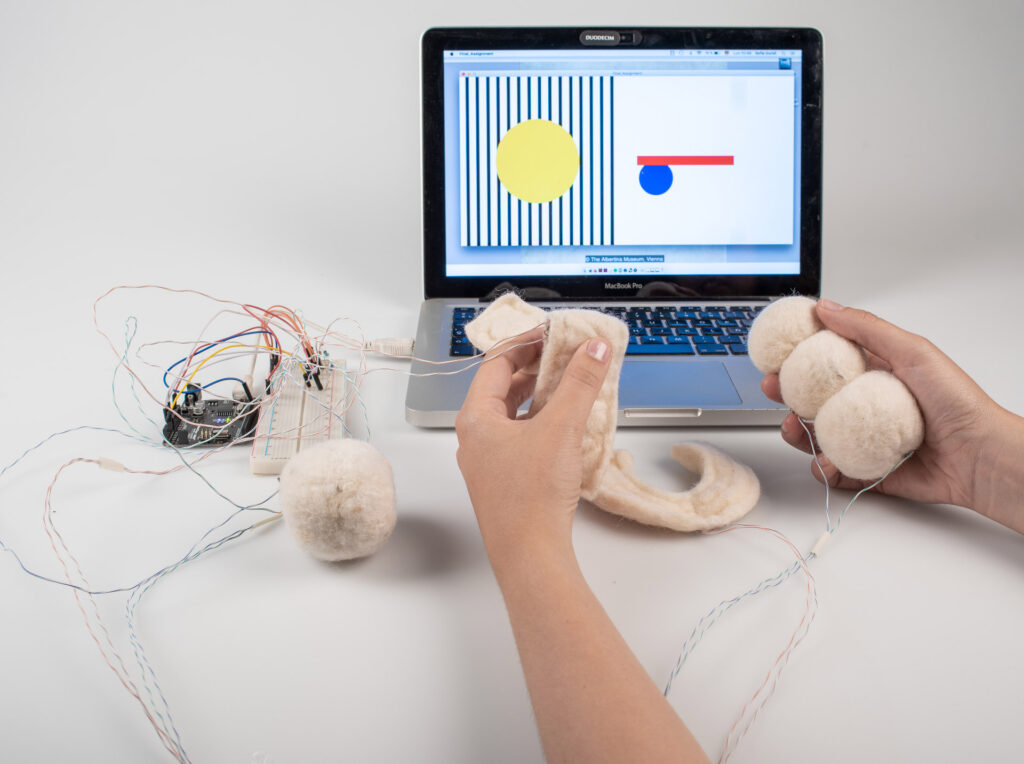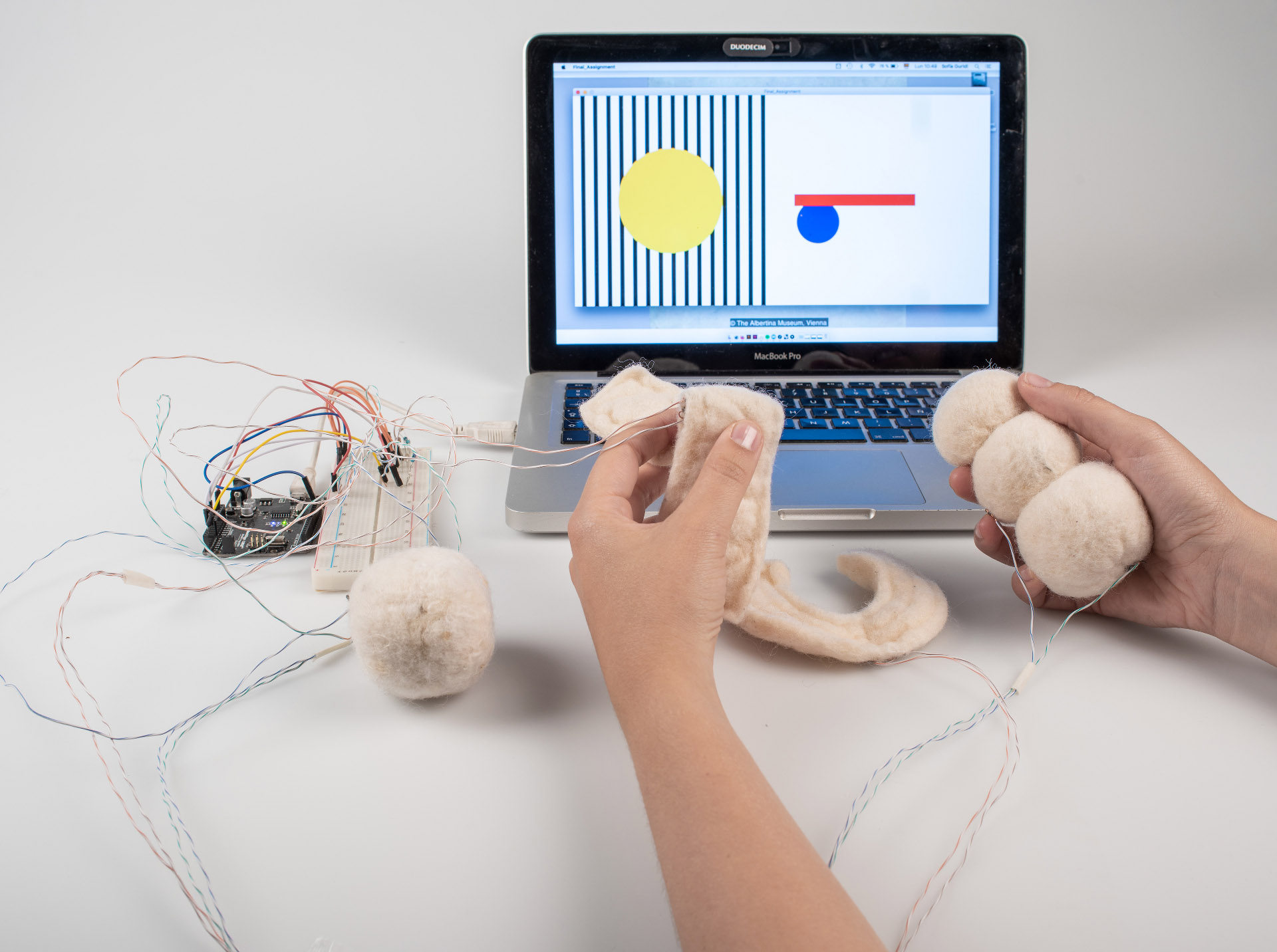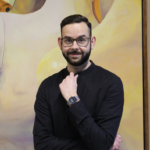
Description:
Required Skills: Basic Arduino Coding
Required Software: Arduino IDE, Processing
Required Hardware: Basic Arduino Kit (UNO board, jumper wires, protoboard, leds, crocodile wires, resistors), Conductive yarns, Thin metal wires, Textile scraps, Needles, Scissors
Maximum number of participating students: 100
“Soft Touch” workshop will explore the creation of soft interfaces for human computing interaction. The development of IoT technologies is in need of better tangible interfaces, where the experience of interaction can include the whole body and senses. Textiles in this field present themselves as exciting materials with special haptic characteristics that can trigger movements, gestures, and feelings that affect the way humans approach digital interfaces. Framed on Material Driven Design methodologies, this workshop invites the students to explore the physical world of soft materials, textures, and shapes. They will be able to create their own soft interfaces with a focus on haptics, aiming to communicate in an interactive way with a digital data visualization code in Processing. The teaching process includes theoretical content regarding smart textiles, haptics, and material-driven design for HCI, as well as technical knowledge about basic circuits and Processing. The design process will start with personal questions on how these new interfaces could enable new ways of interaction in specific contexts, for example, a visually impaired visitor to a museum. The outcomes are both physical and digital and expect to create discussion on how we are relating to digital interfaces and how there is much to explore yet.

Schedule:
timezone: (GMT +3:00) Baghdad, Riyadh, Moscow, St. Petersburg| Start time | End time | Description |
|---|---|---|
| 27.06 Introduction and Material requirements. Smart Textiles, Basic electronics | ||
| 28.06 Haptics, Basic Processing | ||
| 29.06 Prototyping and hands-on work. | ||
| 30.06 Final samples, discussion |
Instructors:
 |
Sofia Guridi | Chilean design researcher, working on the intersection of textiles, electronics, and biomaterials. Her work goes from interactive art installations to applied research and experimental discoveries. Her main drive is the exciting new possibilities of communication and expression enabled by textile interfaces and their connection with the human body. She is currently focused on exploring the potential of biomaterials for creating smart textiles during her Ph.D. studies at Aalto University. |
 |
Tim Moesgen | Tim Moesgen is a design researcher at Aalto University. With a background in collaborative and interaction design he is interested in exploring hybrid interfaces combining the digital and analogue with emerging technologies such as wearable computing, physical prototyping and VR/AR. He is conducting multidisciplinary and participatory research on novel, multi-sensory interfaces. Lately, he is applying and adapting futures and foresight methods for technology research and practice. |
Disclaimer:
All workshops will accept 100 applications MAX.
